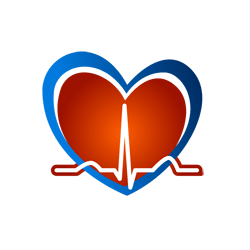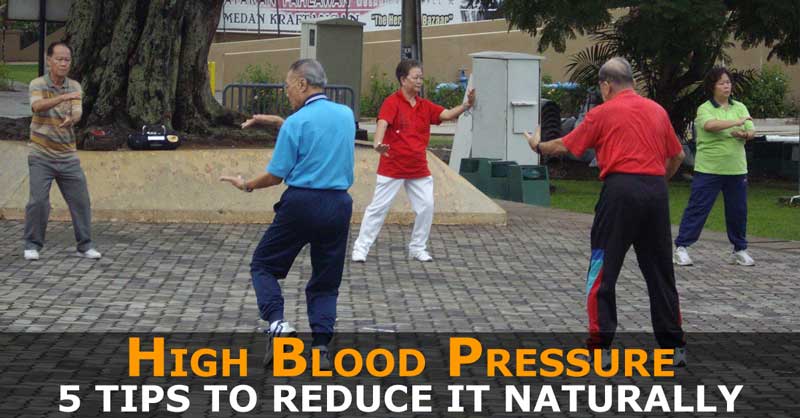High blood pressure is a leading cause of death worldwide, but is easily avoided with a few simple lifestyle changes. Rob Woodgate, co-creator of the Hypnotension programme shares 5 tips which could help save your life.
According to the World Health Organisation, high blood pressure (Hypertension) causes up to a quarter of all deaths worldwide and affects around one in three people. That’s over 16 Million people in the UK, and 50 million people in the USA.
Clinical guidelines define a blood pressure reading consistently around 115/75 as ‘ideal’, and hypertension is a blood pressure reading consistently higher than 140/90mmHg.
The first number in a blood pressure reading, known as the Systolic reading, is the pressure inside arteries when the heart is actively pumping blood through them. The second number, known as the Diastolic reading, is the pressure when the heart relaxes.
High blood pressure can strike at any age, but is more common the older you get. According to the statistics, even if you don’t have high blood pressure by the time you are 55, you still have a 90% chance of developing it later in life.
The good news is that 95% of cases of Hypertension can prevented and even reversed with a few simple lifestyle changes. Here are my 5 top tips to taking control of your blood pressure.
1) Lose any excess weight
Being overweight or obese can dramatically increase your chances of getting hypertension, as well as diabetes.
Likewise, even a modest amount of weight loss can slash the risk of hypertension by 25-35% and studies have shown that, on average, blood pressure falls by 1mmHg for every Kilogram (2.2 lbs) of excess weight you lose.
This means that if you are 25Kg (4 stone) overweight, you could bring your blood pressure from hypertensive levels back down to normal levels, just by shifting that excess weight.
To find out if you are overweight, simply calculate your Body Mass Index (BMI), which is your weight in Kilograms divided by the square of your height in metres.
If your BMI is over 25 or your waist measurement is greater than 40 inches for men or 35 inches for women, you may be carrying excess weight.
2) Reduce your salt intake
Salt is essential for the health of our bodies. Unfortunately, most of us eat so much that it puts us at risk of stroke, high blood pressure, and heart disease.
Salt causes the body to hold more water than necessary, increasing the volume and pressure in the blood vessels and putting excessive strain on your body.
Studies give mixed results, as some people are more sensitive to salt than others, but generally a measurable risk is seen when a person consumes more than 2g of salt per day, which is far lower than the UK and US recommended upper limit of 6g salt (2.3g sodium) per day.
The secret to reducing salt is to look at the food labels carefully, and to avoid adding extra salt when cooking. If you are worried about food tasting bland, add more herbs and spices, though be careful with spice mixes as these can contain a lot of salt.
3) Drink alcohol in moderation
Alcohol has a strong effect on blood pressure, and studies show that the risk of death is higher in men who drink 22 or more units a week and in women who drink 15 or more units per week.
Binge drinking, which is defined as 8 units a day for men and 6 units a day for women, causes dangerous spikes in BP too, so alcohol consumption is safer when drinks are spread over the week.
Like weight loss, studies have that found blood pressure reduces by around 1 mmHg for each unit-per-day decrease in alcohol consumption overall.
4) Deal with emotional stress
As part of the ‘fight or flight’ survival mechanism, our blood pressure naturally rises when we are under stress. Unfortunately, the stresses of modern living can’t easily be fought or escaped, leaving us in a constant state of emotional ‘red alert’.
Studies on working men and women in the USA, for example, found that those with most responsibility for running the home had significantly higher blood pressure than those who left it to their partner.
Emotional stress can be caused by many things, and not everyone reacts to the same triggers, so it’s important to discover your own triggers and take steps to reduce them.
5) Take regular exercise
Being physically active is one of the most important things you can do to prevent or control high blood pressure. So much so that one researcher of healthy aging has called exercise the ‘closest thing to the fountain of youth’.
Exercise keeps your blood vessels healthy, which improves blood circulation, and it also eats up blood sugars, lowering the risk of diabetes and helping you lose excess weight.
It can also mop up ‘stress hormones’ such as cortisol, and increases the level of endorphins, which are your body’s ‘feel-good’ chemicals.
This not only has a positive effect on lowering blood pressure but also helps your sleep, mood and energy levels.
It doesn’t take a lot of effort to become physically active. All you need is 30 minutes of moderate-level physical activity on three or more days of the week. Examples of moderate activities are brisk walking, cycling, gardening and housework.
Even office bound people can find ways to build up to moderate activity levels. Parking a few streets away from the office, taking the stairs instead of the lift, and taking a brisk lunchtime stroll are all great ways to build up your activity levels without changing your routines too much.
Studies have shown that people who exercise, on average, live significantly longer than those who don’t, and one study showed that the onset of initial disability in people who exercised was 16 years later than those who didn’t.
Having high blood pressure can leave you feeling uncertain and worried about your future. Making these lifestyle changes can help put you back control and can make a real difference.
Just remember to praise yourself for each positive step you take towards lowering your blood pressure and accept that you’ll make slip-ups along the way. Go easy on yourself, learn from your mistakes, and then move on.
If you need help to put these tips into practice, our network of Hypnotension practitioners are standing by to help you.
And if you want to know more, why not download our free report.

